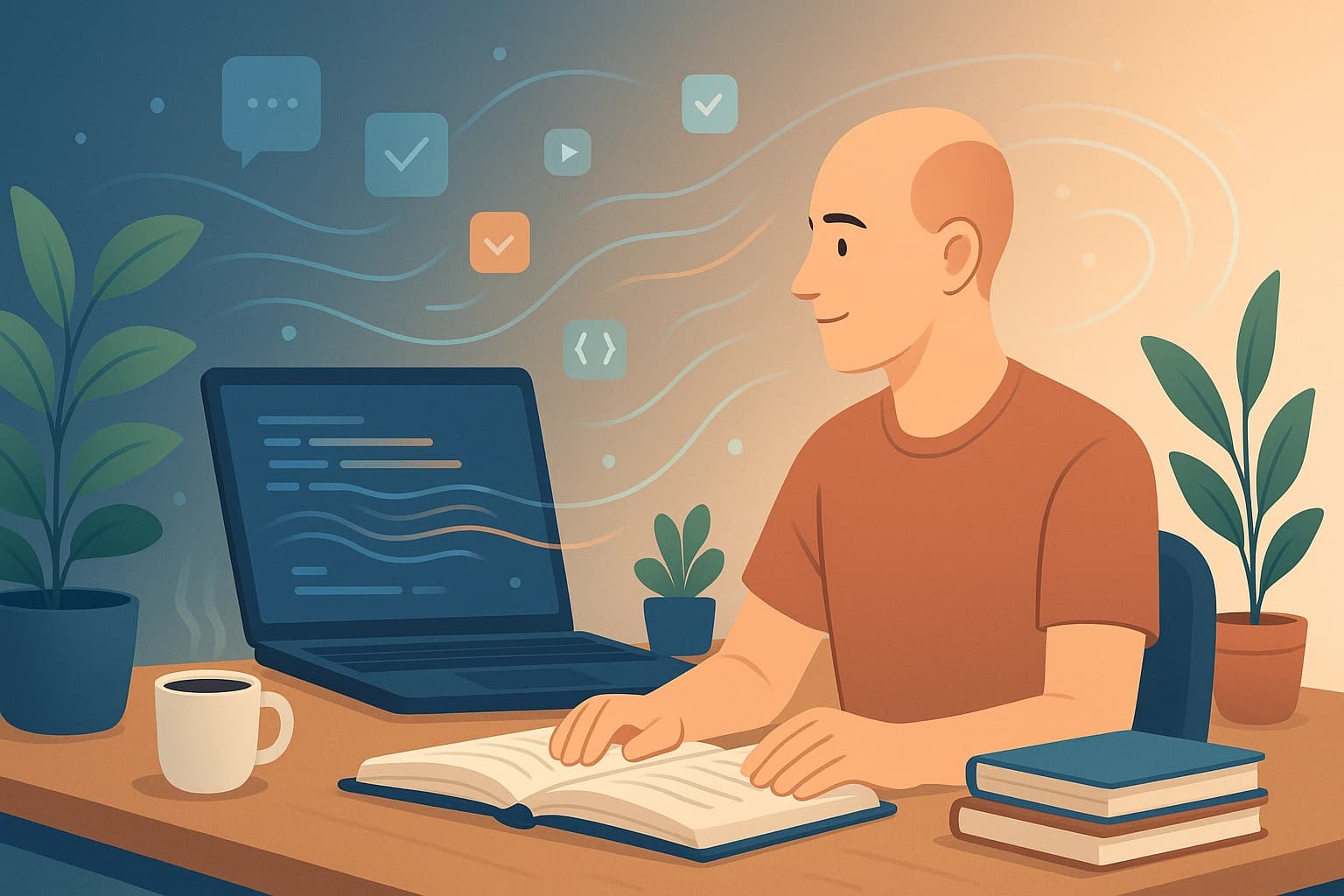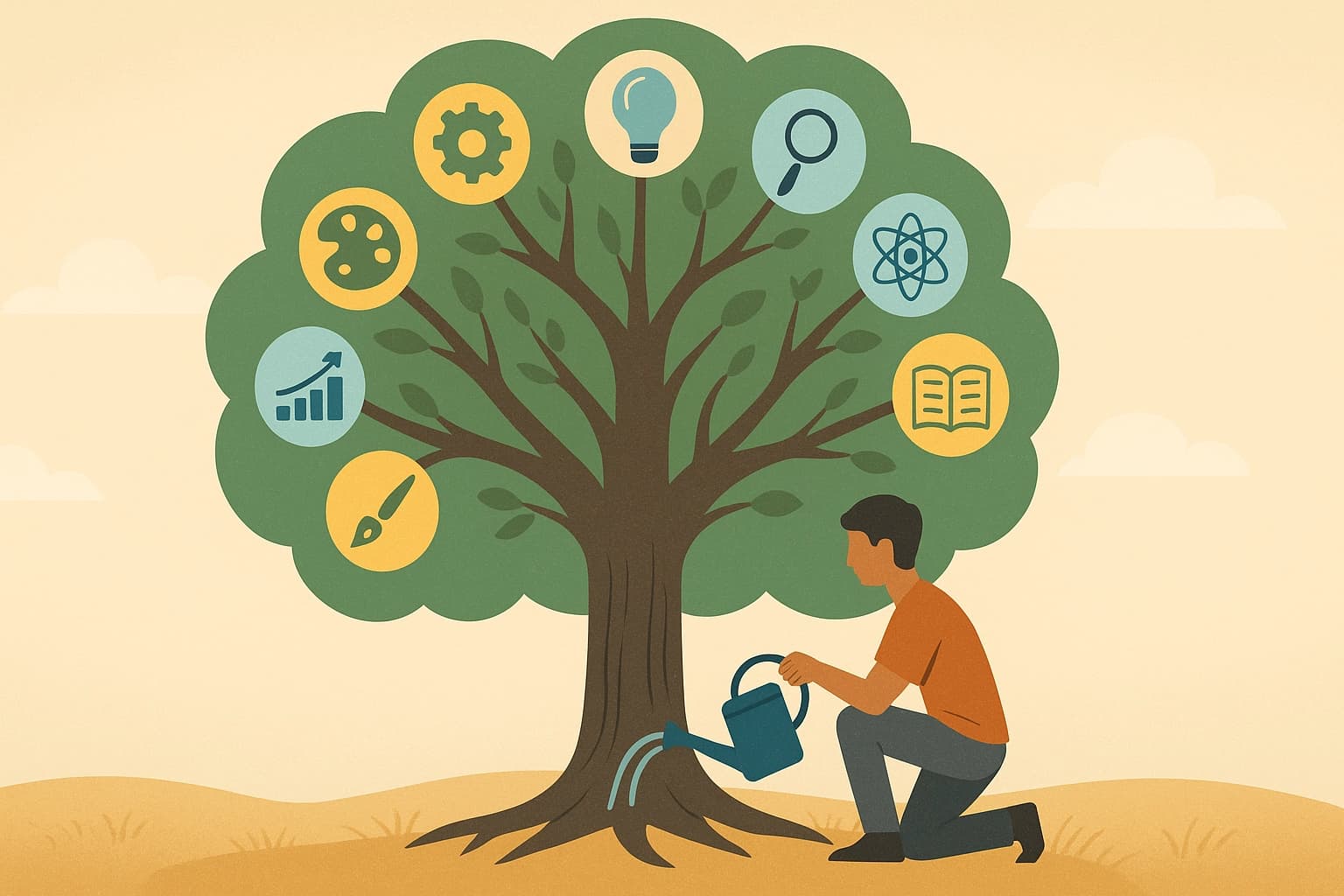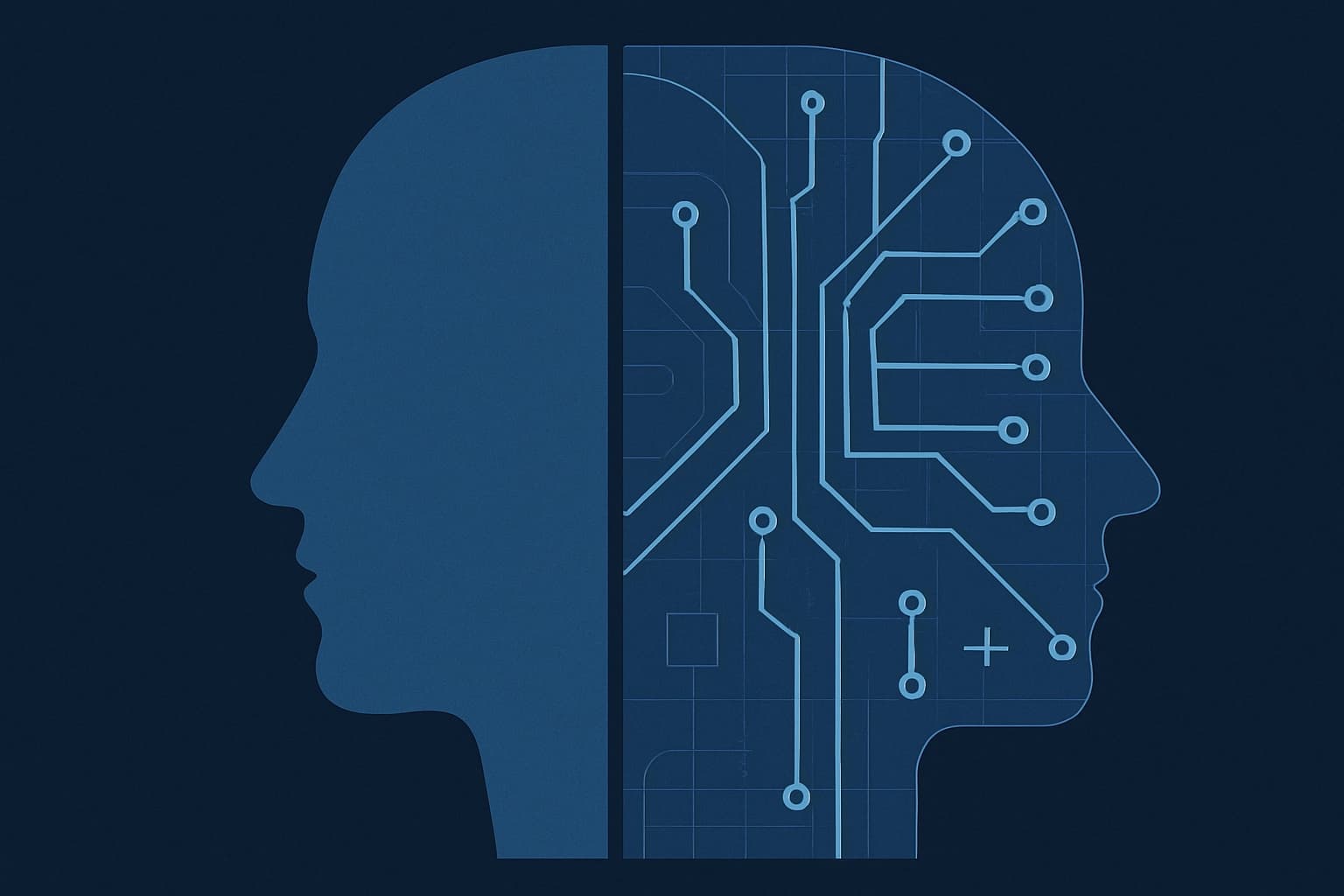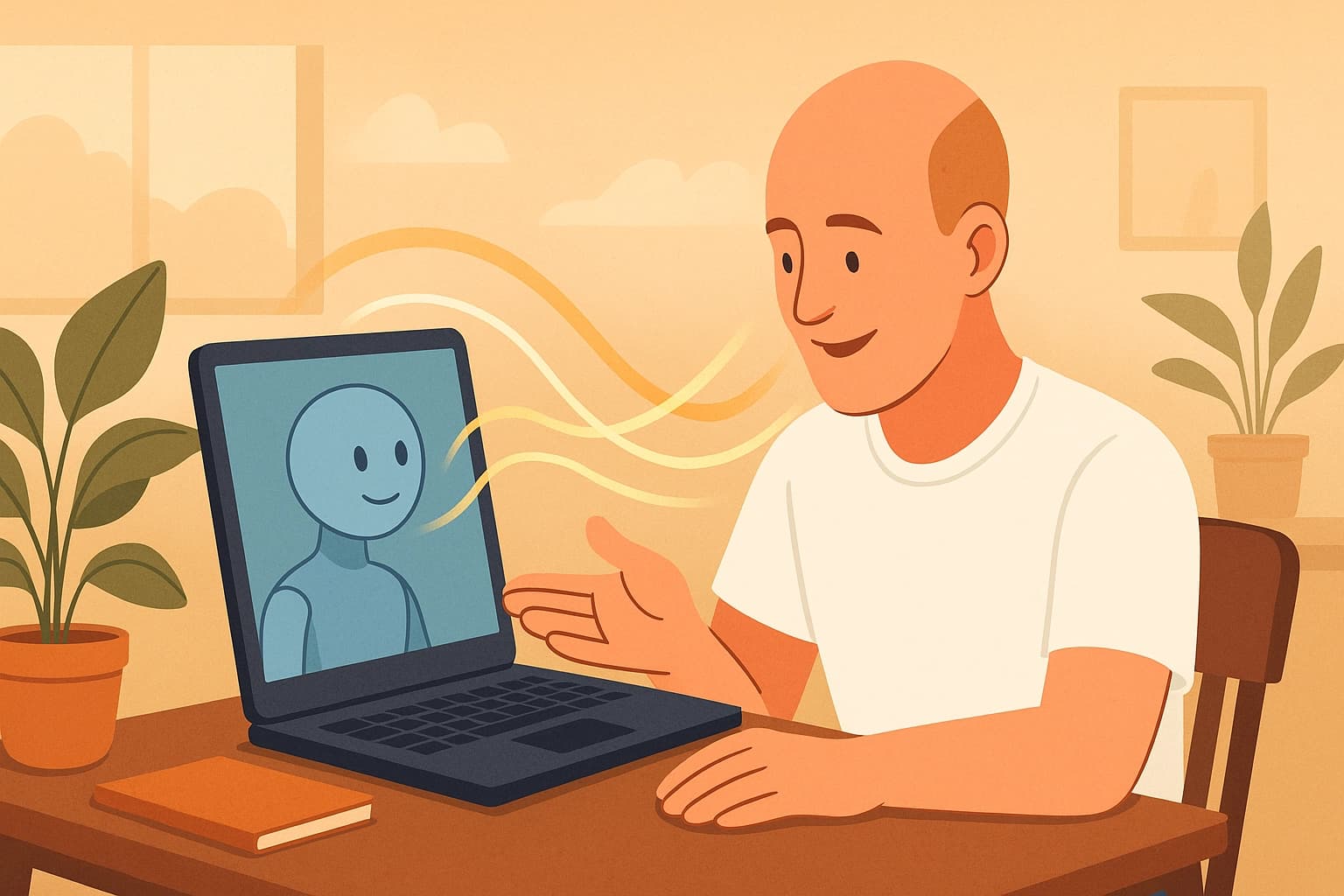
Reclaiming Curiosity: Learning as an Act of Freedom in the Age of Algorithms
I was listening to Brené Brown's conversation with Steven Bartlett recently on The Diary of a CEO podcast — and (spoiler alert) there's a moment that really hit me.
She said, "The algorithms have forced us into a spiritual crisis."
That line stuck with me. Because when you stop and think about it, it's true. We're surrounded by more information than ever, but it's all shaped, filtered, and tuned to keep us comfortable — not curious.
It made me reflect on how I've learned over the years. And I realised something: learning has never really been about formal education for me. It's been about trying things, seeing what sticks, and learning through experience.
I've always preferred to try something and figure out what doesn't work than sit on the sidelines wondering what might. That's where the real learning happens.
Learning by Doing
For me, learning is about staying open-minded. Solutions come in all shapes and sizes, and what looks like a complicated problem often has a simple answer — if you're willing to see it differently.
That's probably why I've always loved building things, breaking them, and figuring them out again. I learn fast, fail fast, and move on. There's something deeply human about that process — it keeps you engaged, present, and aware.
And that's the danger Brené was pointing to. When algorithms feed us the same type of content again and again, we stop exploring. We stop failing. We stop seeing what else might be out there.
What Algorithms Can't Teach You
Over the last few years, I've made a conscious effort to fill my digital world with creativity — people solving problems, whether that's through tech, food, or local projects. It keeps me curious.
But even then, it's easy to fall into passive learning — scrolling, liking, nodding along. It feels like learning, but it's not. True learning takes friction. It takes that moment when you think, "Hang on, maybe I'm wrong about this."
As I've grown a little older, I've become more introspective. I pay more attention to why people make the choices they do. That's become one of my biggest teachers — understanding human behaviour, empathy, and motivation.
Algorithms don't give you that. They give you agreement, not awareness.
From Adaptable to Aware
In previous posts, I've talked about adaptability — about learning to collaborate with AI and thrive in a world that's constantly changing. But I think this takes it a step further.
Adaptability helps us survive.
Collaboration helps us thrive.
But awareness — the ability to think critically, stay open, and keep learning — helps us stay human.
We can automate tasks, streamline processes, and use AI to explore ideas faster. But we still need to make sense of it all — to step back and ask why something matters in the first place.
The Curiosity Muscle
I've started to see curiosity as a muscle. You have to use it, or it weakens.
When I was younger, travelling taught me that. Seeing how different people live, create, and think opened my eyes to more possibilities than I could have imagined. Cultural differences showed me that there's no single "right" way of doing things — just different ways that make sense in different contexts.
That same curiosity shows up in my work now. When I build software, I use AI like an assistant — someone I can bounce ideas off. I've realised you get better results when you treat it like a partner rather than a shortcut. And yes, I still say please and thank you.
It still gets things wrong, but that's part of the point. When it does, it's usually because I haven't given enough context. That feedback loop — of clarifying, refining, iterating — has made me a better thinker.
Learning as Freedom
When Brené said the algorithms are pushing us into a spiritual crisis, I think what she really meant is that we're losing touch with why we learn.
If our attention is constantly directed by what's popular or what's next, then choosing to learn deeply — to sit with something uncomfortable or unfamiliar — becomes a kind of rebellion.
Learning is how we reclaim our attention. It's how we stay confident, connected, and present.
It's how we remind ourselves that understanding the world is something we do, not something that's done to us.
The Bottom Line
Maybe learning isn't about staying ahead anymore. Maybe it's about staying aware.
Learning gives me confidence. It gives me peace. It helps me connect with what's going on around me. And more than anything, it helps me stay present — really in life, not just observing it through a screen.
So yes — Brené's right, spoiler included. The algorithms might be forcing a spiritual crisis. But the answer isn't to run away from technology. It's to meet it with curiosity.
Because the moment we stop learning, we stop living consciously.
Stay curious.
What about you? When was the last time you learned something that truly changed how you see the world?
Found this helpful? Share it!
Enjoyed this post? Subscribe to my newsletter for more insights on web development, career growth, and tech innovations.
Subscribe to NewsletterRelated Posts

Jack of Many Trades, Master of Learning
Explore how curiosity, versatility, and lifelong learning help professionals thrive in the age of AI. The true edge is adaptability, not specialisation.

Why I Still Learn the Hard Stuff (Even When AI Can Do It)
AI can write the code, but it can't understand the system. Here is why learning the fundamentals matters more than ever.

Human + AI: The New Collaboration Skill
How working with AI shifts our process from building alone to exploring together and why the real skill now is collaboration.